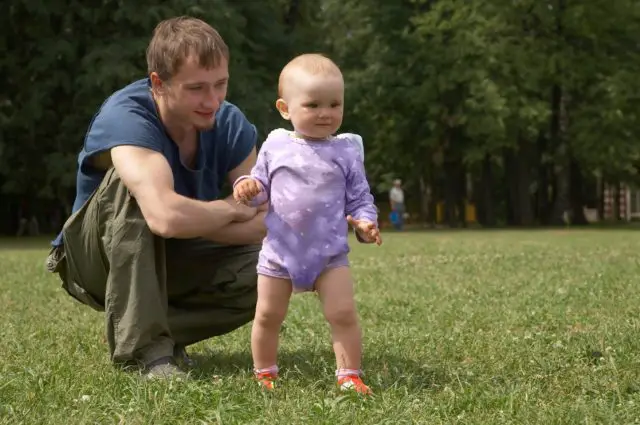(This week is the fourth installment of the book, “The Band Director’s Lessons About Life”, which TCRN is publishing as a series during 2020. This week, band director and spiritual author Donald Lee begins part 1 of the book and relates the first parable—about being ready to change. For a complete listing of previous episodes in this series, click here.)
Part 1: Preparation
A journey of a thousand miles begins with a single step.
LAO TZU
(Ancient Chinese philosopher, writer, founder of Taoism)
Before we set out on any journey, we would, of course, decide where we want to go. It’s amazing how many of us set out in life with no idea whatsoever about where we want to go. Our first step from wherever we are right now on life’s journey is to decide where we’re headed.

In a school band program, I start the year by roughly planning our performance schedule. Typically, we might do a Halloween concert, a Christmas concert, our local music festival, a spring tour, and a year-end concert. All my teaching is built around the performance schedule. That’s the “band performance cycle.”
When students start band in grade seven, they can’t see how great they can become after six years. They can’t see the whole thousand-mile journey. I set little goals for them so they can see the first step—the next concert. I help them believe they can do that. Then I give them the next step—one step at a time in an iterative process of becoming a musician.
We can think of music as a metaphor for any growth in our lives—personal growth, professional growth, business growth—but I’m using it as a metaphor for spiritual growth. Spiritual reality underlies and supports physical reality. It’s like the steel frame of a skyscraper. You can’t see it, but you know it supports all you can see. When we grow spiritually, we experience growth in all facets of our lives.
Spiritual growth is the constant process of seeing in our mind’s eye who we really are and who we really want to become. Like band students, we can see the next step. We can see ourselves being just a bit better than we are right now. That’s our next spiritual goal—to be just a bit better.
In this first stage of preparation, we set that goal and arrange things in our lives (our thinking, mostly) to be ready to start working toward that goal, one spiritual step at a time. You’ll be amazed at the places you’ll see on this journey. Take my hand and let’s get started.
Parable 1
I Can Only Teach You What You Want to Learn
You don’t need to see the whole staircase, just take the first step.

(Twentieth-century American minister and civil rights activist)
“Mr. Lee, do you have a pencil I can borrow?”
“Sure, right here.” I stepped over to my desk, opened the top left drawer where I keep a stash of spare pencils, and pulled one out. As I walked it over to the trumpet section, it dawned on me why Ruby wanted a pencil. She was going to write the trumpet fingerings on her music.
Ruby was making okay progress in grade-eight band. She clearly loved music and spent any spare minute she had tinkling on the piano. But she lacked focus and self-control. Half the talking during rehearsals came from Ruby alone. She was polite enough. When I would ask her to be quiet, she would stop talking and I would carry on, yet ten seconds later she’d be talking again.
“Don’t write down the fingerings, though,” I said, handing her the pencil. “That won’t help you.”
“Yes, it will. I can’t remember them,” she countered nonchalantly.
“You think so, but you end up looking at the numbers you’ve written under the notes and not at the notes themselves. So your mind never makes the connection between what you see on the page and what you do with your fingers. I’ve seen students who have been in band for three years and still don’t know their fingerings.”
“But it helps me,” she insisted.
The other students chuckled. They’d heard this lecture before.
Students often look for a shortcut to learning—doing what’s easy, not what’s effective.
“Trust me, Ruby. If writing the fingerings on your music actually helped your learning, I would make everyone do it. But it doesn’t help. It hinders your learning. What does help is what I’ve taught you in class.
“If you forget the fingering for a note, look it up on your fingering chart. Once you’ve made the effort to look it up several times, it will stick in your memory. We remember things better when it takes effort to learn. We remember best if there’s pain involved. Stick your hand on the hot burner of a stove just once, and you’ll remember it your whole life. But the teaching profession frowns upon me using pain as a teaching tool, so just look up the fingerings on the chart. Writing the fingerings below the notes on the page simply doesn’t work.”
“It works for me,” Ruby said dismissively as she wrote the fingerings on her music.
“Ruby, instead of arguing with me, why not trust me? This isn’t my first day as a band director. I’ve been through this with lots of students.”
But she didn’t trust me. She continued writing her fingerings on the music. Ruby wanted to learn music, but she thought she knew better than her teacher. She insisted on doing things her way instead of following the teacher’s instructions. It didn’t work out very well for her.
Reflection
What do you want to learn? Where are you going on your spiritual journey? Before you set out, take stock of where you are now and where you want to go. That’s step one of our preparation.
First of all, we must understand who we are. “We are not human beings having a spiritual experience, we are spiritual beings having a human experience,”1as Pierre Teilhard de Chardin said.Our fundamental nature is spiritual. We are spirit, or soul. I use these terms interchangeably. Not everyone does, but that’s my level of understanding.
Our spirits are eternal. Our bodies are temporary. I don’t claim to know where our spirits come from or where they go except that we somehow came from God and will return to God. The key thing is that we are spirit, mind, body—in that order of importance.
Our life journey is fundamentally a spiritual journey. As the opening quote to this parable says, we don’t need to see the whole staircase in order to take the next step. We do, however, need to know which staircase to climb. Our spiritual journey will take us places we don’t expect and cannot foresee. But we still need to have a destination—a goal—in mind. What is yours?
I believe each of us has both a general purpose and a specific purpose in life. The general purpose is one we share with all humanity: to learn to love. God’s greatest attribute is love. God is Love. Our purpose is to become Love, to learn to love all people at all times in all situations—to manifest the Love of God in the world. And that’s a tall order.
I also believe we have a specific purpose in life, one unique to each of us. That’s tougher to figure out. We don’t know what that purpose is. Or, more precisely, our conscious mind doesn’t know it. But God knows. Somehow our soul knows. Deep inside of us is the knowledge of our specific purpose. We need to connect to the Divine within—that still, small voice inside each of us through which God speaks. While it’s easy to talk to God, it’s harder to listen. He speaks softly. He speaks to our heart. We need to find ways to listen to our heart, to connect with that “Divine within”, to find God’s guidance for our lives.
Usually we make our own plans, without God’s input. Like Ruby, we do things our way. We think we know what we’re doing. But we’re writing the note names on the music even though our teacher has shown us a better way. Who is our teacher? I always turn to Jesus, the Master Teacher. You may turn to someone or something else. It’s up to you to choose your teacher in this school of life. Choose wisely.
Then have the humility to follow that teacher’s instructions. We often resist the lessons, the teachings, the discipline, the hardships. Don’t be like Ruby, because your teacher can only teach you what you are willing to learn.

Donald Lee is a spiritual author and speaker. This article is part of a weekly series for 2020 in which TCRN is publishing his book, The Band Director’s Lessons About Life: Volume 1 – 50 Parables on Life’s Performance Cycle, in serial form – one parable per week. You can learn more about the author at his website: www.ComingHomeSpirit.com, or order a copy of his complete book on Amazon.
